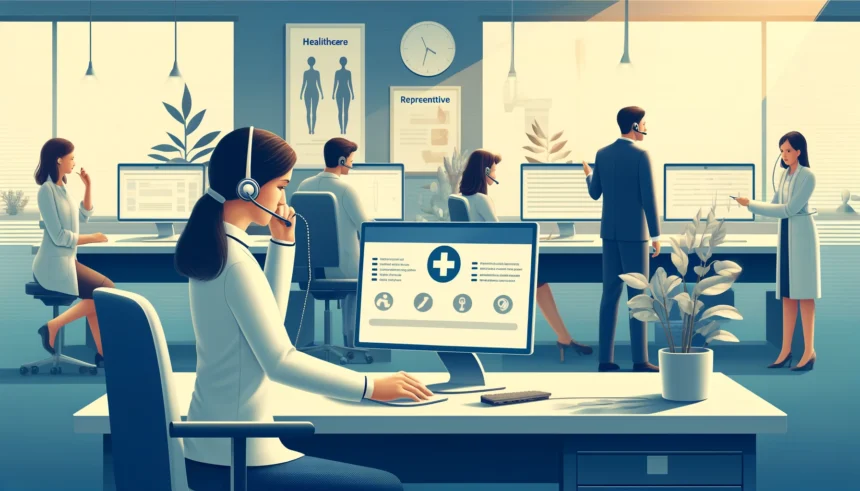Healthcare service providers have been struggling for years to adequately protect patient privacy and improve patient finances. Although HIPAA requires detecting the inappropriate access of protected health information (PHI), relying on manual processes to monitor all access is nearly impossible, especially with PHI spread across multiple environments, including mobile devices, on-premise data centers, and the cloud. To make matters more complicated, many users elevated access privileges.
Healthcare businesses are increasingly realizing the strategic value of automated machine learning (ML) solutions in bolstering compliance, detecting potential snoopers, and preventing unauthorized access. However, given the constraints of limited resources and tight cybersecurity budgets, any investment in new technologies must be meticulously planned and, above all, strategic. This strategic approach is paramount to ensure that the investment is in line with the organization’s long-term goals and requirements.
In light of ongoing threats to patient privacy and the constantly changing cybersecurity landscape, healthcare service providers should ensure that their identity and access management (IAM) strategy incorporates a PHI monitoring strategy.
The Price Of Violating HIPAA
To comply with the HIPAA Security Rule, healthcare service providers must produce audit logs that track system activity based on application, system, and user access. Additionally, a variety of other violations related to the inappropriate access of e-PHI (electronic PHI) can have significant financial implications. The HIPAA Journal states that the penalty for each of these violations can reach $50,000.
Healthcare service providers already face many difficulties, especially financial ones. Thus, they cannot afford to incur a significant fine for HIPAA violations. The pandemic’s aftereffects are currently being felt by healthcare institutions. The healthcare industry has difficulties and risks due to economic uncertainty, a lack of qualified personnel, hybrid IT infrastructures, and a rise in mergers and acquisitions.
According to data from the HHS Office for Civil Rights (OCR), almost 300 data breaches in the healthcare industry in the first half of 2023 impacted the PHI of over 39 million people. These breaches have consequences beyond just financial loss. They may harm the hospital’s reputation and patient privacy.
Given the seriousness of the cybersecurity issue facing the healthcare industry, HDOs must take calculated risks to reduce any risks to patient privacy and safety. Too frequently, we witness compliance professionals, CISOs, or CIOs making choices about cybersecurity or compliance just to “check a box.” This isn’t the best long-term approach to get the most out of your assets. Patient safety, patient privacy, and workforce efficiency can only be cross-functionally improved by rationalizing every IT and cybersecurity decision. It is imperative to include cybersecurity as an integral part of healthcare’s key infrastructure to enhance patient care, as errors cannot be made.
The Difficulties Of Manual Access Monitoring
Many businesses manually review audit records to find unauthorized access to comply with HIPAA regulations. With millions of EHR accesses happening every day at a hospital, incidents involving manual monitoring techniques will inevitably slip through the cracks. Furthermore, a growing number of people find that manual processes are not scalable in reach, timeliness, consistency, or accuracy as usage spreads across more applications and digital services. This is made more difficult by the absence of a methodical strategy for controlling digital identity.
While reactive, manual auditing is one way to comply with HIPAA theoretically; protecting patient privacy goes beyond just following the law. Patient safety suffers when a proactive monitoring approach is neglected or underfunded.
Those doing manual audits of EHR access often study and scrutinize a random sample of PHI accesses. Weekly or monthly manual audits mean that IT staff might only examine a small number of the thousands of accesses that take place on the network every day. This audit isn’t comprehensive. It doesn’t provide information on patterns of user access over time. Additionally, IT teams are unable to determine whether an access incident is a false positive, which may cause them to overlook persistent patterns or trends.
It is unfeasible for healthcare service providers to manually validate every access event, even though they can supposedly show HIPAA compliance and perform a shoddy audit. Unauthorized access will inevitably escape investigation, which means that there will be another HIPAA breach. Healthcare service providers require a comprehensive strategy to access monitoring to safeguard patient privacy. Manual monitoring is not scalable enough to match the depth of inquiry and auditing capabilities required to safeguard patient privacy adequately.
IT teams should consider using advanced machine learning (ML) technology in PHI access monitoring as the healthcare industry’s network grows outside the traditional perimeter and healthcare service providers adopt an identity-centered approach to cybersecurity. By integrating with already available IAM solutions, they can implement a more thorough monitoring and patient privacy protection approach.
Preserving Patient Confidentiality by Emphasizing Identity
Adopting an identity-first cybersecurity approach is critical for guaranteeing patient safety and safeguarding an organization’s security and compliance. Cybersecurity is also vital in safeguarding a patient’s physical and digital health, which are equally crucial.
Healthcare service providers can more securely monitor and enable interaction with PHI if they use a dynamic IAM strategy that centers around patient identity. This strategic approach to cybersecurity allows IT staff to see everything going on in the environment, which also paves the way for a more effective privacy monitoring system.
In short, healthcare service providers should use their IAM strategy, embrace automated machine learning (ML) solutions for PHI access monitoring, and consider the advantages of patient privacy and compliance to optimize current cybersecurity resources.








